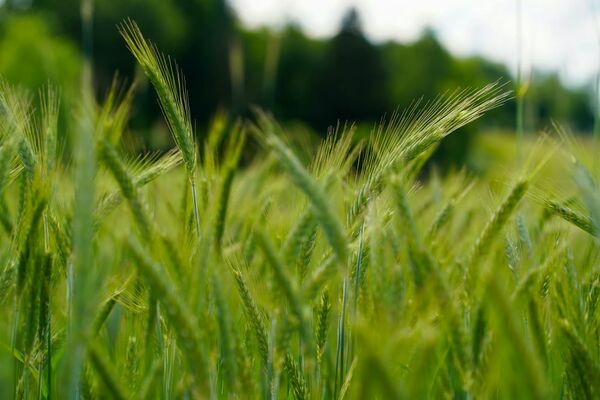In modern agriculture, insecticides have become essential to protect crops from harmful pests. One such chemical that has gained significant popularity in recent years is Emamectin Benzoate. This insecticide is commonly used to manage a variety of pests that threaten crops, but questions about its safety for crops and soil health have been raised. In this blog, we will explore the safety of Emamectin Benzoate, its benefits, potential risks, and how it impacts farming practices, particularly in organic farming.
What is Emamectin Benzoate?
Emamectin Benzoate is a broad-spectrum insecticide derived from avermectins, a group of chemicals produced by soil bacteria. Agriculture primarily uses it to control various pests, such as caterpillars, thrips, and whiteflies. The insecticide works by interfering with the nerve function of pests, leading to paralysis and eventual death. It is effective against many pests and resistant to other insecticides, making it a valuable tool for farmers.
While it is a powerful insecticide, it is also known for its relatively low toxicity to humans and animals, making it a popular choice among farmers. However, concerns about its long-term effects on soil health, non-target organisms, and overall crop quality have been raised.
How Does Emamectin Benzoate Affect Crops?
Emamectin Benzoate is highly effective in controlling pests, thus improving crop yield and quality. It works systemically, meaning that the plant absorbs it and provides protection on the surface and throughout the plant tissue. This characteristic makes it an excellent choice for crops susceptible to internal feeding pests, such as caterpillars.
However, while Emamectin Benzoate can improve crop health in the short term by protecting plants from pests, its long-term effects must be considered. Overusing insecticides like Emamectin Benzoate may result in the development of resistance among pest populations. This could lead to the need for even more substantial or more toxic chemicals, adversely affecting crop and soil health.
The Impact of Emamectin Benzoate on Soil Health
Soil health is a critical factor in successful farming. Healthy soil supports plant growth, regulates water movement, and helps break down organic matter. The use of Emamectin Benzoate and other insecticides can have both direct and indirect impacts on soil health.
- Soil Microorganisms: Emamectin Benzoate can negatively affect soil microorganisms, such as bacteria and fungi, essential for nutrient cycling. These microorganisms break down organic matter in the soil, releasing nutrients that plants need for growth. When insecticides are applied to crops, they can leach into the soil, potentially harming these beneficial organisms.
- Soil Fertility: Over time, insecticides like Emamectin Benzoate may reduce soil fertility. When soil microorganisms are impacted, the breakdown of organic matter slows down, leading to lower nutrient availability for crops. This can result in synthetic fertilizers needing to maintain soil fertility, contributing to a cycle of dependency on chemical inputs.
Despite these concerns, using Emamectin Benzoate, when appropriately applied, can have minimal long-term effects on soil health. Proper application methods, such as using the recommended doses and avoiding excessive frequency, can help mitigate these risks.
For farmers looking for an alternative approach that balances pest control with sustainability, Emoxam - Emamectin Benzoate 3% + Thiamethoxam 12% WG is a combination insecticide that provides effective pest control while maintaining crop health.
Is Emamectin Benzoate Safe for Organic Farming?
Organic farming avoids synthetic chemicals and pesticides, relying on natural methods to control pests and diseases. The use of Emamectin Benzoate in organic farming is a contentious issue. While not approved for organic agriculture by all certification bodies, some organic farmers use it under specific conditions.
The key concern for organic farmers is that Emamectin Benzoate is a synthetic chemical. While it may effectively control pests, its use contradicts organic farming principles, which advocate for using natural and less harmful substances.
That said, Emamectin Benzoate is considered less toxic to humans and animals compared to other chemical insecticides. Studies have shown minimal toxicity to non-target organisms, such as birds and beneficial insects. However, since organic farming prioritizes ecological balance, many farmers prefer to rely on integrated pest management (IPM) techniques, such as crop rotation, natural predators, and organic insecticides.
"Farming is not just about growing crops; it is about cultivating the health of the land, the crops, and the entire ecosystem."
Benefits and Risks of Using Emamectin Benzoate
Benefits:
- Effective Pest Control: Emamectin Benzoate is highly effective against various pests, including caterpillars, whiteflies, and thrips, which are notorious for damaging crops.
- Low Toxicity to Non-Target Species: When used according to the recommended guidelines, Emamectin Benzoate is low toxicity to birds, mammals, and aquatic organisms. This makes it safer for the surrounding environment compared to many other insecticides.
- Reduced Pesticide Resistance: Emamectin Benzoate works differently from other insecticides, which means pests are less likely to develop resistance to it. This can help maintain effective pest control for longer periods.
Risks:
- Soil Contamination: While Emamectin Benzoate is less likely to persist in soil than other insecticides, improper application can lead to contamination. Overuse or excessive application can disrupt soil ecosystems and affect plant growth.
- Impact on Beneficial Insects: Although Emamectin Benzoate is less toxic to beneficial insects, improper application may harm pollinators like bees and other non-target species. This can disrupt the local ecosystem and reduce biodiversity.
- Potential for Resistance: Just like other insecticides, pests can develop resistance to Emamectin Benzoate over time, especially if it is used too frequently. This could result in diminished effectiveness and the need for stronger chemicals.
Alternatives to Emamectin Benzoate in Sustainable Farming
Farmers seeking to minimize their use of synthetic chemicals can explore a range of alternatives to Emamectin Benzoate. These include biological control methods, such as releasing beneficial insects like ladybugs to control pests, or using organic insecticides derived from plant-based compounds. Integrated pest management (IPM) approaches, which combine multiple strategies for pest control, can also be highly effective while reducing the environmental impact.
Additionally, crop rotation, companion planting, and proper soil management can help reduce pest pressure, thus decreasing the need for chemical insecticides altogether.
The Way Forward: Balancing Productivity and Sustainability
The use of Emamectin Benzoate in agriculture has both advantages and drawbacks. On the one hand, it offers effective pest control, contributing to higher crop yields and better plant health. On the other hand, its potential effects on soil health and non-target organisms make it a chemical that should be used cautiously.
Farmers must balance protecting their crops and preserving the health of their land. Farmers can ensure the long-term health of their soil and crops by adopting integrated pest management strategies, being mindful of application rates, and exploring sustainable alternatives.
Rather than focusing solely on one solution, a more holistic approach to pest control is the key to creating a sustainable agricultural system that thrives in harmony with nature.



